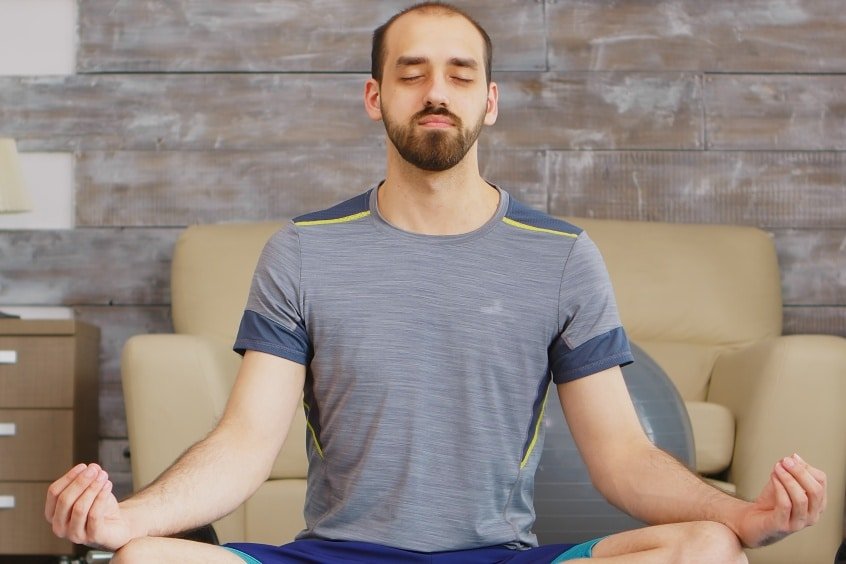These past few years, mindfulness has gotten a lot of attention as a useful way to improve mental health. Mindfulness is an idea that goes back a long time, but new study is showing how it can help mental health in the real world. The link between mindfulness techniques and mental health is that they can help people become more aware, lower their stress, and find internal balance. This piece talks about how mindfulness can improve mental health and why it’s so important to do in today’s busy world.
Learning About Mental Health
Mental health is more than just not having a mental disease; it also includes being emotionally, mentally, and socially well. People with good mental health can deal with the stresses of daily life, do their jobs well, and help their communities. But problems like worry, sadness, and long-term stress are common in modern life and can hurt mental health.
Therapy, medicine, and changes to one’s living are common traditional ways to treat mental health problems. Mindfulness is an easy-to-use extra method that can help people take an active role in their mental health journey, along with these other methods. It makes the mind healthy by helping people be more aware of their inner experiences without judging them.
What Does Mindfulness Mean?
To be mindful, you have to consciously pay attention to the present moment with acceptance and openness. It means being aware of your thoughts, feelings, and body experiences without judging or trying to change them. With this kind of gentle awareness, we can break out of natural, and often bad, ways of thinking.
Mindfulness can be as easy as paying attention to your breath or the way you feel while doing everyday things. Mindfulness practice builds a calm and centered state of mind over time, which helps people deal with problems more clearly and calmly.
Why mindfulness is good for you Health and Mind
Mindfulness has been shown to help mental health in many ways. One of the most important effects is that it lowers stress. The body releases stress chemicals during the fight-or-flight reaction when it is under a lot of stress. Mindfulness calms the nervous system, lowers heart rate, and lowers cortisol levels, which works against this. With less stress and worry, this physical rest makes you feel better.
Mindfulness also makes it easier to control your emotions. Mindfulness encourages people to notice their hard emotions, like anger or sadness, without judging them. This way of being helps people not respond automatically to these feelings. This change gives you time to think about your response instead of just reacting without thinking. Over time, this makes your mood more stable and strong.
Researchers have also found that mindfulness improves focus and attention, two things that are often harmed by mental health problems like sadness and worry. Mindfulness lowers ruminating, which is repeated negative thoughts, which is a common feature of many mental health problems. It does this by teaching the mind to stay in the present moment.
Mindfulness and Stress
Anxiety is often marked by worrying too much about the future and being very alert all the time. Mindfulness techniques help because they keep a person in the present, which makes them less likely to think of the worst-case scenarios. Mindfulness helps people become more aware of their worried thoughts without getting caught up in them, which weakens them.
A number of therapy programs, such as Mindfulness-Based Stress Reduction (MBSR), have been shown to help people with worry. Mindfulness gives people useful tools to handle anxiety attacks as they happen, which makes them feel more in charge of their mental state.
Mindfulness and Feeling Down
Negative emotions like sadness, hopelessness, and a lack of drive are signs of depression. Mindfulness can help because it breaks the loop of negative thoughts that can lead to depression. Mindfulness makes it easier to be aware of your thoughts and feelings without judging them. This makes it less likely that you will dwell on doubts or fears about the future.
awareness-Based Cognitive treatment, or MBCT, is a method that blends cognitive treatment with awareness. It works especially well to keep people who have had repeated sadness from falling back into old habits. MBCT tells people to look out for early warning signs and use mindfulness techniques to break out of negative thought loops.
Tips for Practicing Mindfulness to Improve Your Mental Health
Mindfulness doesn’t have to take up a lot of time in your daily life. In the long run, simple things can make a big difference in mental health. For example, to practice mindful breathing, you need to focus on your breath to center your awareness. You can do this anywhere, and it helps relieve stress right away.
Body scans are another way to focus on and notice how different parts of your body feel without judging them. This can help connect your mind and body better and ease stress.
Mindful eating or walking helps you slow down and fully experience the present moment, which can make you feel more calm and satisfied.
How to Get Past Problems in Mindfulness Practice
Mindfulness is easy to practice, but many people who are just starting out have problems, like a mind that wanders or getting impatient or frustrated. Remember that becoming more aware is a skill that takes time to learn. The goal is not to clear your thoughts, but to quickly bring your attention back to the present moment whenever something else comes up.
More important than length is consistency. Over time, even short awareness lessons every day can make your mind stronger and more resilient.
The Effects of Mindfulness on Mental Health in More Areas
Mindfulness can help people in many ways, including their relationships, their work, and their general quality of life. Being more emotionally aware helps people understand and communicate with others better. Mindfulness also helps you be kind to yourself, which is very important for your mental health.
A lot of schools and businesses are starting mindfulness classes to help people feel less stressed and get more done. More and more research is showing that mindfulness is an important part of comprehensive mental health care.
Practicing mindfulness can help your mental health
There is a strong link between mindfulness techniques and better mental health, and study backs this up. Mindfulness is a useful and effective way to deal with sadness, worry, and trouble controlling your emotions. It gives people the tools they need to live with more understanding, respect, and strength.
Mindfulness can make a big difference in your mental health if you practice it every day. Mindfulness is a great way to live a better, more balanced life, whether you are dealing with mental health problems or just want to feel calmer.


